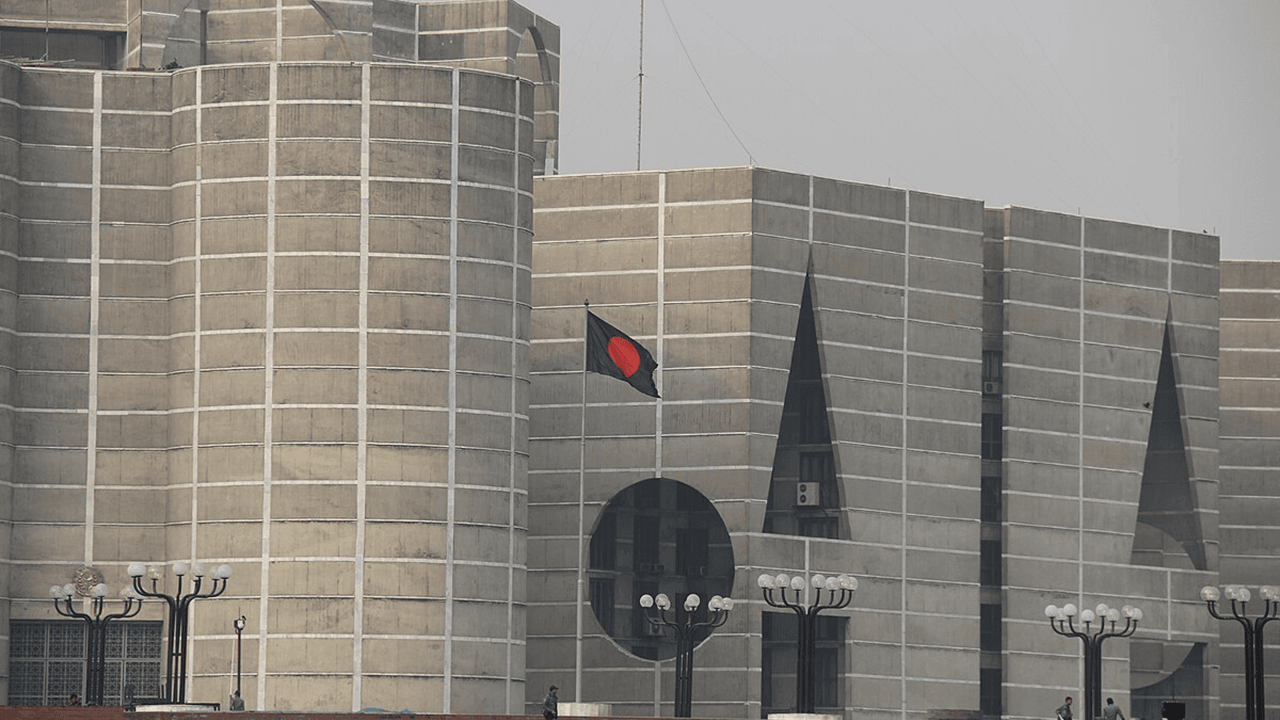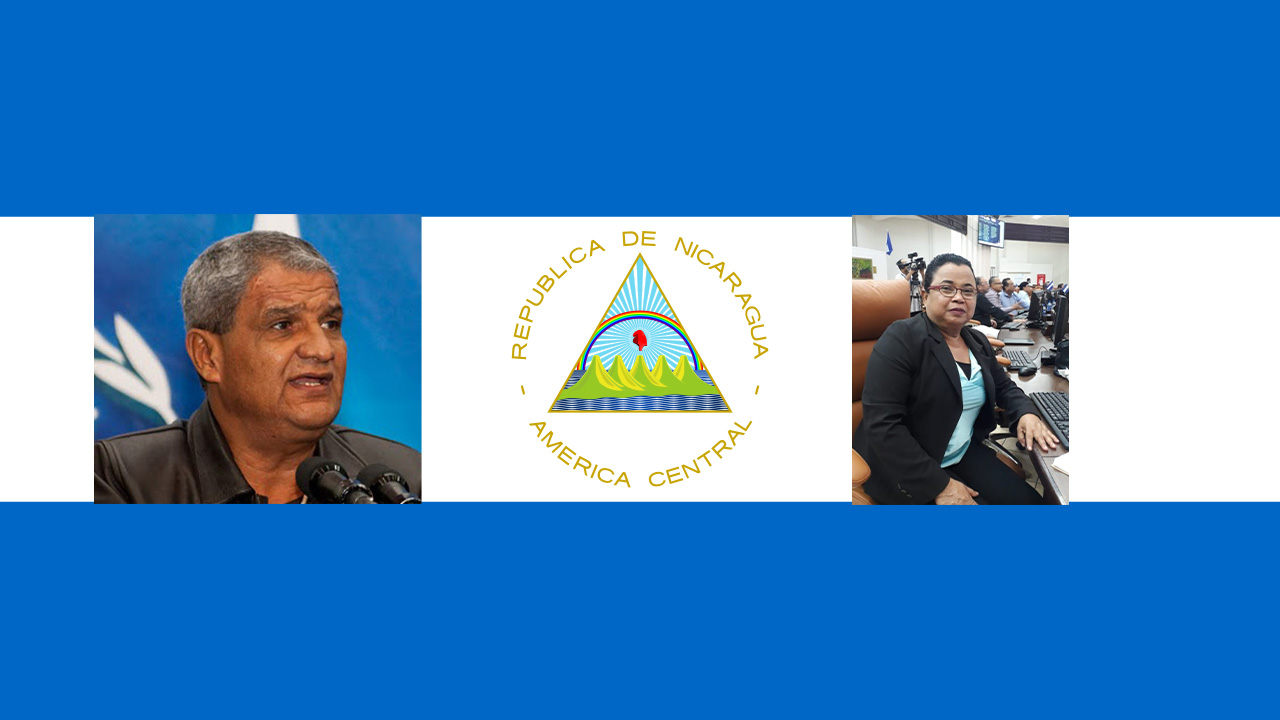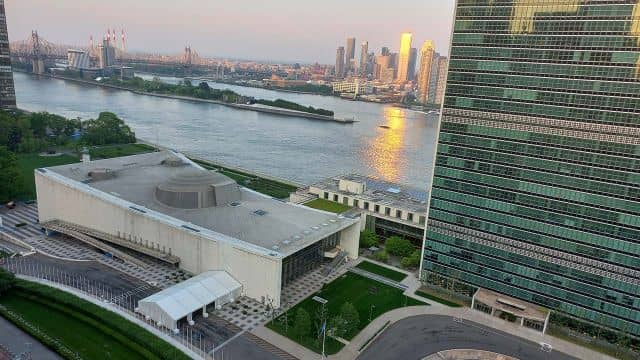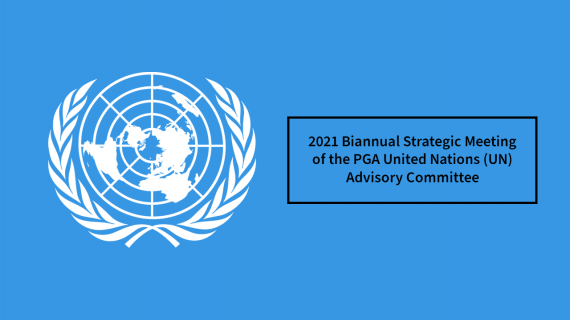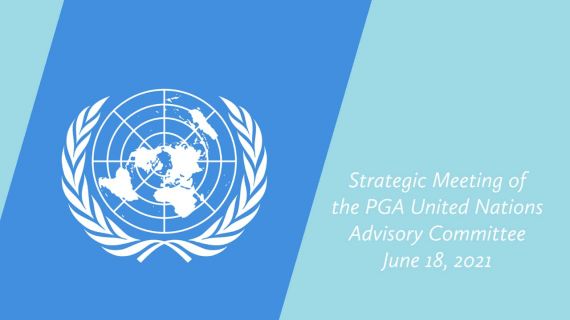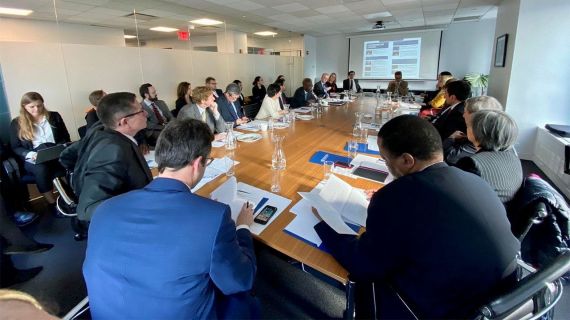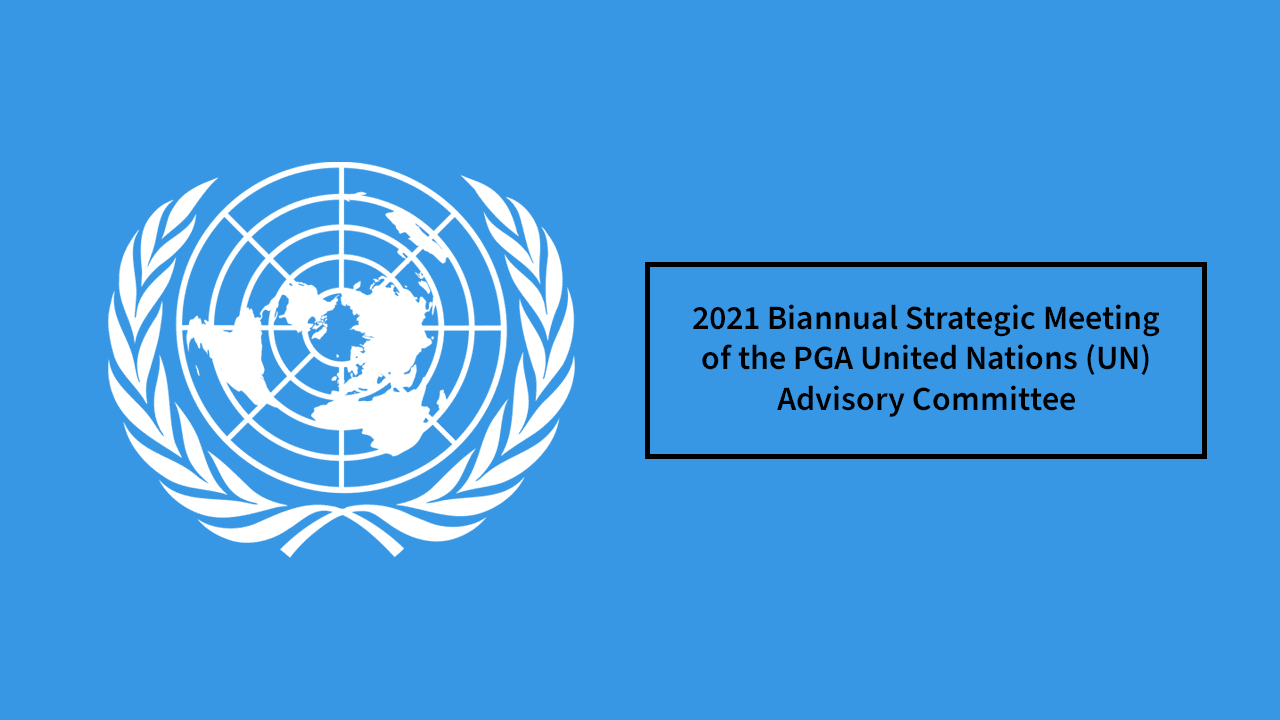
On 21 December 2021, on the occasion of the visit of PGA President to New York, in her capacity as newly elected President of the OSCE Parliamentary Assembly, PGA organized its 2021 Biannual Strategic Meeting of the PGA United Nations (UN) Advisory Committee. This meeting, hosted by the Permanent Mission of Switzerland to the UN, provided an opportunity for an open and fruitful exchange on how Members of Parliaments can act to contribute to the prevention of atrocity-crimes and to improve the safety and security of Afghan civilians.
On May 1, 2021, the United States began the withdrawal of its troops from Afghanistan after 20 years in the country. President Biden, in his remarks on 16 August 2021, explained that the goal of United States was never supposed to have been nation building, or the creation of a unified, centralized democracy. The Taliban – whose ruling between 1996 and 2001 was marked by violent extremism and a fundamentalist application of a distorted version of Islamic law – took control of the country, allegedly committing atrocities and serious human rights violations against Afghan civilians, including women and girls, children, journalists, human rights defenders, members of Parliament, and any individuals who worked or supported Western powers. Against a background of economic collapse, Afghanistan is now engulfed in a humanitarian crisis in which approximately 23 million civilians are at-risk of being in food insecurity.
In his opening remarks, Ambassador Christian Wenaweser, Permanent Representative of Liechtenstein to the UN, reiterated the importance of atrocity-prevention frameworks. On the tragic situation of Afghanistan, the Security Council of the UN was envisaging to take a decision on humanitarian exemptions, but one must remember that the protection of civilians and accountability mechanisms are essential. Ms. Margareta Cederfelt, MP (Sweden), President, Parliamentary Assembly of the Organization for Security and Co-operation in Europe, added during her keynote remarks that since the Taliban violently seized power, Afghan legislators have had to leave their positions and civilians are at greater risk, which should prompt the vigilance and action of the international community.
In the first panel dedicated to strengthening humanitarian and accountability mechanisms as a pressing imperative for the international community, PGA Member Hon. Mariam Solaimankhail, MP (Afghanistan) emphasized key elements, including:
- The engagement of the international community requires innovative thinking, including with grassroots organizations which allows for the expansion of scope, reach and monitoring of aid.
- The international community should provide humanitarian assistance without empowering and legitimizing the Taliban regime.
- The international community must ensure that the voices of civilians, especially human rights defenders are not silenced.
Part 1 of my speech to the biannual Strategic meeting with the UN advisory committee in regards to Afghanistan and strengthening accountability and monitoring mechanisms. Also a condemnation to imran khans statement at the OIC. pic.twitter.com/BSYXGhptQC
— Mariam Solaimankhil (@Mariamistan) December 22, 2021
In the second panel dedicated to atrocity-prevention and the failure of interventionism in the case of Afghanistan, Ms. Reem Alsalem, Special Rapporteur on violence against women, its causes and consequences, explained that the current situation cannot be seen in isolation from the past. Gains from 2002 to 2021 were made and are now being undone by the current regime. We must however remember that there were many issues for women and girls before the Taliban seized power. Other actors such as ISIS or Coalition Forces had been causing trouble in rural areas which are far away from the eyes of the international community. The aforementioned groups and the dire socio-economic conditions have exacerbated the poverty and forced the displacement of many civilians. The approach of relevant stakeholders has to be comprehensive and implemented on the long-term. There are no quick fixed to human rights violations; underlying causes and consequences have to be addressed. When determining which policies to be put in place, actors must consider the situation on the ground. The sanctions regime has already affected vulnerable groups who now face greater difficulty in accessing food and health services. Ms. Alsalem emphasized that for solutions to work, they have to be designed and implemented with Afghan civil society and Afghan women, as equal partners. The international community must hold State and non-State actors accountable on gender irrespective of their status or which government is in power. At the national level, the rights of women and girls must be upheld and domestic laws cannot serve as a justification for failing to meet treaty obligations. If we want societal progress at all levels, women rights should not only be understood as a human rights issue but also a development issue.
Afghanistan has an imperative to respect international law and such an imperative has several implications. David Donat Cattin, Secretary-General of PGA reminded the distinguished audience that the current Afghan government, as it is not internationally recognized, cannot withdraw the State from treaties’ regimes. Dr. Donat Cattin expressed the need for the international community to learn from its failures especially on counter-terrorism, which has indirectly contributed to policies that have perpetuated impunity for crimes against humanity and war crimes in Afghanistan notwithstanding President Karzai’s decision in 2003 to ratify the Rome Statute of the ICC. PGA has been active in raising awareness on the situation in Afghanistan, through webinars with civil society organizations, legislators and Sharia-law experts who regularly reiterate that the actions and practices of the Taliban are against Sharia law and apply a distorted version, which must be combatted within the Islamic world.
During the fruitful exchanges, Ambassador Alexander Marschik, Permanent Representative of Austria to the UN, emphasized that the short term goal is to provide immediate aid to civilians in need especially considering the winter, with a focus on women and girls. Long term goals should focus on how to tackle political and regional insecurity and reach the Afghan people more efficiently. Ambassador Rodrigo Carazo, Permanent Representative of Costa Rica to the UN, echoed his colleague’s remarks and outlined the various difficulties encountered when attempts are made to reach the Afghan people with food and other humanitarians goods. Some agencies, such as UNICEF, should be mobilized and part of a broader inter-agency coordination. In his closing remarks, Mr. Adrian Hauri, Deputy Permanent Representative of Switzerland to the UN, emphasized that justice remains a crucial element to address conflict and post-conflict situations. Countries should remain strong on accountability efforts, which are essential to sustainable and long lasting peace and security. Strengthening atrocity prevention and accountability mechanisms for international crimes remains a crucial endeavor in Afghanistan and other situations in the world.
The international community must provide a safe space for Afghans to engage with each other and with other actors. Afghan civil society must be included in the conversations to rebuild trust so that any assistance may be given in an effective and meaningful way. All participants committed to continue supporting Afghanistan and human rights defenders.


